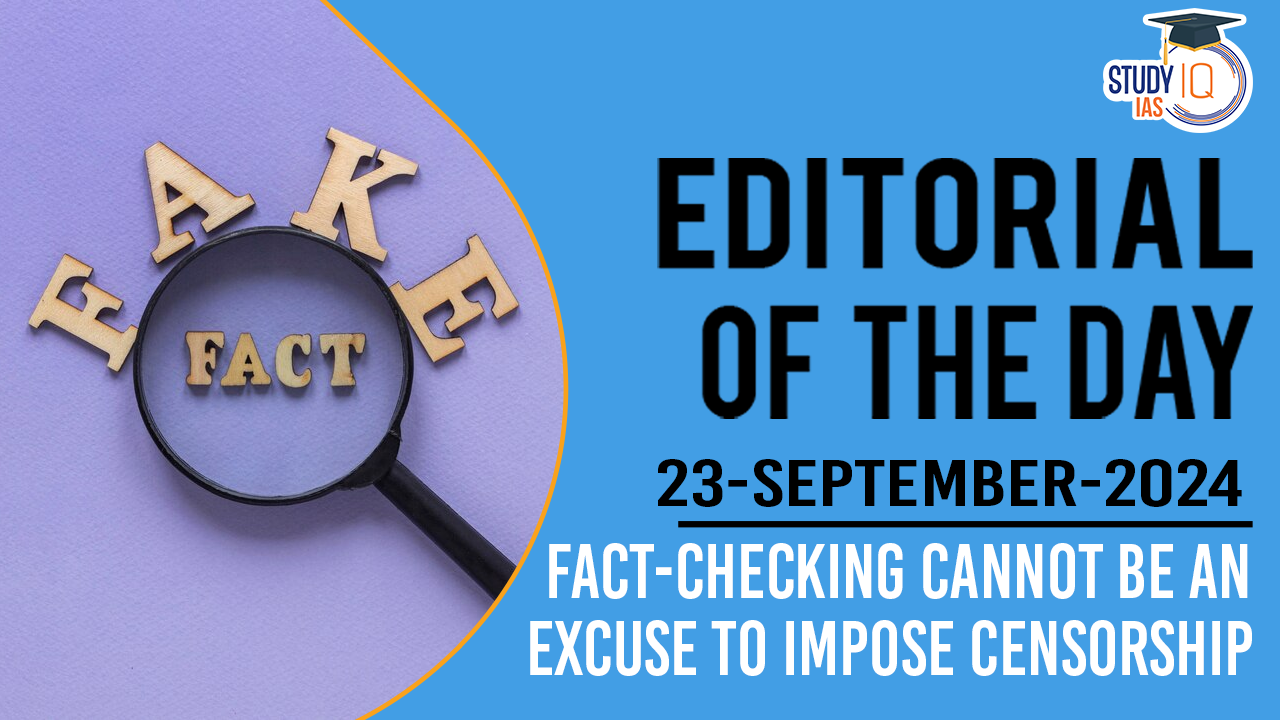Table of Contents
Context: The Bombay High Court’s Justice AS Chandurkar struck down Rule 3 of the Information Technology (Intermediary Guidelines and Digital Media Ethics Code) Amendment Rules, 2023 (IT Rules Amendment).
| What was the rule? |
| ➺ It empowered the Central government to establish Fact Check Units (FCUs) to regulate ‘fake news’ against the government on social media and online platforms. |
Other Provisions in Information Technology Amendment Rules, 2023
- Framework on Online Gaming: Online intermediaries should make reasonable efforts to not host, publish or share any online game that can cause the user harm, or that has not been permitted by an online gaming self-regulatory body designated by the Central Government.
- The intermediary will also have to ensure that no advertisement or promotion of an online game that is not a permissible online game, is hosted on its platform.
- The amended rules also cast additional obligations on online gaming intermediaries in relation to online games involving real money.
- The Government may create a Board of Directors representing the online gaming industry. It shall have experts, including online games users, educationists, psychology or mental health experts, ICT experts etc.
- Safe Harbour Protection: If intermediaries fail to remove flagged information, they may lose their safe harbour protection under Section 79 of the IT Act.
- Grievance Appellate Committee: The rules add a grievance appellate committee to hear appeals against the decisions of grievance officers.
Function of Fact Check Units (FCUs)
- To identify online information that is “fake,” “false,” or “misleading” and related to the Union government.
- The unit can then decide on the online presence of such information.
- If any piece of information is marked as fake by the upcoming fact check unit, online intermediaries will be required to take it down. Internet service providers will have to block URLs of such content.
What were the Reasons Bombay High Court struck down IT Rules Amendment on FCUs ?
- Violation of Freedom of Speech: The rule infringed upon freedom of speech and expression by imposing vague and overly broad restrictions on content deemed “fake, false, or misleading.”.
- Discrimination Against Digital Platforms: The rules discriminated against digital platforms by imposing stricter scrutiny compared to print media which violated Article 19(1)(g) – protection of the right to carry on trade and profession.
- Conflict of Interest: The government’s position as the final arbiter of “fake news” about itself through the FCU created a clear conflict of interest. The FCU acted as a judge in its own cause, violating principles of impartiality and fairness, thus undermining its constitutionality.
- Vagueness and Overbreadth: The terms “fake,” “false,” and “misleading” were not adequately defined, making the rule excessively vague and open to interpretation. This allowed too much discretionary power to the FCU, leading to the potential misuse of the rule.
Conclusion
The ruling emphasised the need for clear definitions in law, protection against arbitrary government action, and equal treatment under the law for all forms of media. The decision underscores a commitment to uphold constitutional rights amid increasing regulation of digital platforms.


 Why India Needs Its Own Economic Model?
Why India Needs Its Own Economic Model?
 Challenges in India’s Airline Sector: ...
Challenges in India’s Airline Sector: ...
 Forest Conservation Act, 1980: Objective...
Forest Conservation Act, 1980: Objective...

























